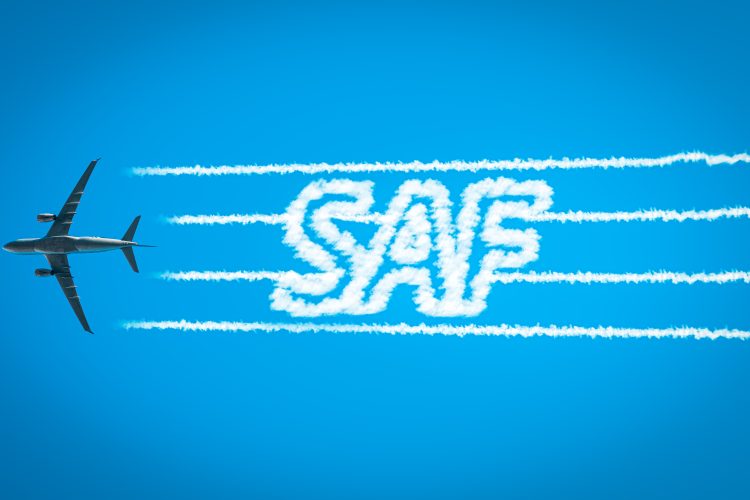Why unlocking SAF supply is the key to sustainable aviation
Posted: 7 June 2024 | Kevin Singh | No comments yet
International Airport Review receives this exclusive insight from Icarus Jet’s Founder and CEO, Kevin Singh. Here, Kevin addresses the supply-demand gap in the delivery of sustainable aviation fuels and how collaboration and innovation is essential in overcoming this.


The supply-demand shortfall of sustainable aviation fuels
As the CEO of Icarus Jet, a company deeply committed to sustainability in the aviation industry, I find it imperative to address one of the most pressing challenges we face: the supply-demand gap in sustainable aviation fuel (SAF). While the demand for SAF is evident and growing, our ability to unlock the necessary supply remains the primary obstacle on our path to a greener aviation sector.
Let’s face the facts. According to the International Air Transport Association (IATA), the current production rate of SAF stands at a mere 3% of the total fuel required for the industry. Even with a projected tripled production rate in 2024, SAF will only account for 6% of total fuel consumption. The demand for sustainable alternatives is there, but we’re falling short on the supply side of the equation.
Let’s face the facts. According to the International Air Transport Association (IATA), the current production rate of SAF stands at a mere 3% of the total fuel required for the industry.”
In 2023, SAF volumes reached 600 million litres, doubling from the previous year. Yet, this accounted for only 3% of all renewable fuels produced, with the majority allocated to other sectors. While the expected tripling of SAF production in 2024 is a step in the right direction, it still falls drastically short of meeting aviation’s fuel needs, constituting just 0.53% of our requirements.
The recent third conference on aviation alternative fuels (CAAF/3) outlined a global framework to promote SAF production, aiming for fuels used in international aviation to be 5% less carbon-intensive by 2030. This ambitious target requires a monumental increase in SAF production to approximately 17.5 billion litres. However, current projections indicate that over 78 billion litres of renewable fuels will be produced in 2029, highlighting the critical need for policy frameworks that prioritise SAF allocation.
Working with authorities and organisations is crucial
It’s crucial to recognise that demand for SAF is not the issue. Every drop of SAF produced has been purchased and utilised, with airlines committing to significant volumes in the coming years. However, unlocking the supply to meet this demand requires proactive policy measures from governments worldwide, and these measures must incentivise renewable fuel producers to allocate a substantial portion of their output to SAF production.
[The] demand for SAF is not the issue. Every drop of SAF produced has been purchased and utilised, with airlines committing to significant volumes in the coming years. However, unlocking the supply to meet this demand requires proactive policy measures from governments worldwide.”
A recent poll conducted by the Icarus Jet data and research team further emphasises the importance of driving up SAF production. When asked if SAF is the best solution for sustainability, 65% of respondents advocated for increasing production, while 35% dismissed sustainability as merely a buzzword. This indicates a clear appetite within the industry for tangible action toward sustainability.
As an industry, we have a responsibility to collaborate and innovate to overcome this challenge. We must advocate for policies that encourage investment in SAF production and distribution infrastructure, with governments, industry stakeholders, and environmental organisations working hand in hand to create a conducive environment for sustainable aviation.
Last but not least, I cannot add the finishing touches to this piece without mentioning that aviation’s share of total energy-related CO2 emissions in the world represents 2%, according to the International Energy Agency. This is the same amount that data storage centres around the world generate, including all devices associated with this industry. By no means do I intend to downplay aviation’s environmental output; just clearly stating the facts as a response to what I believe is unnecessary negative press and activism towards this industry.
Furthermore, IATA recently prepared a comprehensive chart that highlights the global greenhouse emissions map, with the industries that most contribute at a global scale, which is definitely worth a look to comprehend how various parts of the global economy contribute to emissions.
At Icarus Jet, we are committed to playing our part in this effort, and we believe that increasing SAF supply is the first step in the process for a greener aviation industry. We will continue to invest in research and development, explore partnerships, and advocate for policies that accelerate the transition to sustainable aviation. Together, let’s unlock the supply of SAF and pave the way for a cleaner, and consistent future for aviation – leading our narrative to more tangible environmentally friendly actions.


Credit: Icarus Jet
About the author
Pilot, President, and Founder of Icarus Jet and a leading global trip support and aircraft management company, Kevin Singh has flown globally as a chief pilot and captain on private jets like the Hawker 800-A and 850 XP, and the Challenger 600 series and Global 6000.
More Like This
Pioneering a new era of passenger experience at London Gatwick
Finding ‘Finnspiration’ in Helsinki Airport’s new development
Capitalising on emerging market growth at Ravinala Airports, Madagascar
The International Airport Summit is open for registration!
Date: 19 – 20 November 2025
Location: JW Marriott Hotel Berlin
At our flagship event of the year, we will dive into the future of airport operations, with expert-led sessions on passenger experience, innovative smart technologies, baggage handling, airside operations, data, security, and sustainability.
This is where global airport leaders come together to share insights, challenges, and real-world solutions.
Limited complimentary passes are available for eligible professionals – first come, first served!
Related organisations
Icarus Jet, International Air Transport Association (IATA), International Energy Agency













